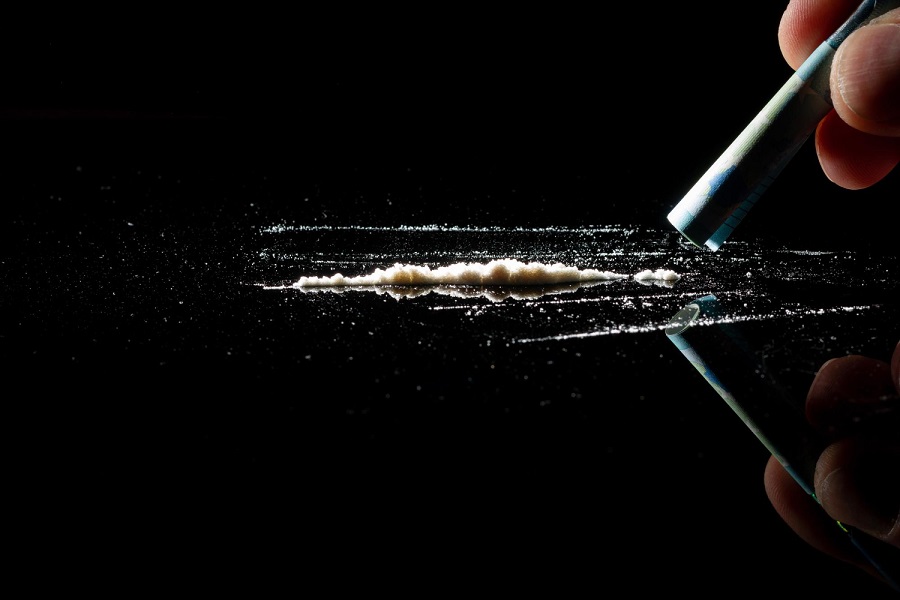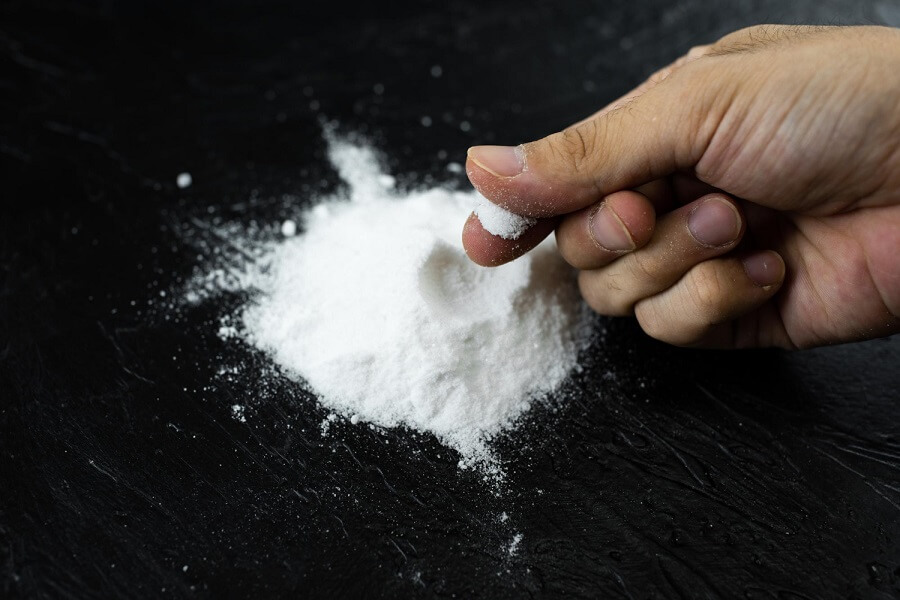Heroin is an infamous opioid drug that is known for its high tendency to cause physical dependence that leads to addiction. It can have many life-threatening effects with regular use.
A common misconception about opioids is that they are safe for use because doctors prescribe them for pain relief. But using opioids like heroin, can cause addiction which can be dangerous.
This article will take a closer look at what heroin is, and discuss the effects, classification, addiction, symptoms, and treatment.
What Is Heroin
Heroin is an illegal opioid drug derived from morphine, and using it regularly can cause addiction. Since its immediate effect is to reduce pain, people often abuse it. Long-term use of heroin can result in health and lifestyle problems. So, why is heroin bad?
People either sniff heroin or inject it. Some also mix it with cocaine, a process called speedballing. Most people who buy heroin are not aware of its actual strength, which can be a leading cause of heroin overdose.
What Drug Classification Does Heroin Belong to
Heroin is an opioid drug. Opioids act on specific receptors in the brain and mimic the effects of neurotransmitters. They are potent painkillers and also induce feelings of pleasure.
What Is Heroin Made From
Heroin is made from morphine, a natural substance obtained from the plant’s seed pod, named opium poppy. This opium poppy plant generally grows in Mexico, southeast and southwest Asia, and Columbia.
What Does Heroin Look Like
The purest form of heroin is a white powder, but it can also be black or brown, depending on the additives used to dilute it. These additives can be sugar, caffeine, or other substances. Heroin can also look like a sticky black substance called black tar heroin.

What Color Heroin Is
Typically, heroin is found in the following colors:
- White or black powder
- Sticky black tar
What Is Heroin Addiction
Heroin addiction is considered to be the recurrent use of the drug with a high chance of relapse after abstinence. People who regularly use heroin develop heroin tolerance. This means that they need a higher dose to get the same effect. Over time their body gets used to it, and they start craving it. It is illegal to use heroin as it is a highly addictive drug.
Why Do People Use Heroin
Heroin has a depressant effect on the brain, which slows down certain brain functions and can result in a feeling of pleasure and well-being. One of its immediate effects is pain relief. Users reported a sudden surge of pleasurable sensations called a “high” or “rush” after using heroin. Due to its pain relief and pleasing effects, abusers are attracted to using heroin again and again.
Risk Factors of Heroin Addiction
Common risk factors of heroin addiction include:
- A family history of addiction
- Exposure to drugs at an early age
- Having friends or family members who use drugs
- Mental health disorders, such as depression or anxiety
- Trauma or stress
- A history of substance abuse

The Effect of Heroin on the Human Body
Heroin affects the body in the following ways:
Short-Term Effects
- Pleasure and pain relief
- Dry mouth
- Flushing of skin
- Nausea and vomiting
- Severe itching
Long-Term Effects
- Insomnia
- Loss of sex drive
- Liver and kidney diseases
Signs and Symptoms of Heroin Addiction
Physical Symptoms
- Constricted pupils
- Respiratory problems
- Malnutrition
- Insomnia
- Exhaustion
- Significant weight loss
- Skin bruises due to injecting heroin
- Blood clots
- Seizures
- Loss of menstrual cycle in women
- Gastrointestinal problems like constipation
- Craving heroin
Psychological Symptoms
- Anxiety and depression
- Guilt associated with the use of heroin
- Low self-esteem
- Extreme mood swings
- Agitation
- Unable to concentrate or focus
- Confusion and hopelessness
- Suicidal thoughts
Behavioral Symptoms
- Unsatisfactory performance at work
- Social withdrawal or isolation
- Loss of interest in activities that you once enjoyed
- Lying about the use of heroin
- Lack of interest in personal hygiene and grooming

Signs of a Heroin Overdose
Heroin use can be deadly and occurs when addicts overdose on the drug. The signs include:
- Low body temperature
- Slowed breathing and heart rate
- Bluish discoloration of fingernails and lips
- Cold skin
- Unable to speak
- Convulsions
- Coma
Withdrawal Symptoms
People addicted to heroin experience painful withdrawal symptoms if they abruptly stop using the drug.
Symptoms can begin even after a few hours after the drug was last taken. What does heroin withdrawal feel like? These are the common symptoms:
- Restlessness
- Agitation
- Severe muscle and bone pain
- Diarrhea and vomiting
- Sleep disturbance
- Uncontrollable leg movements
- Anxiety
- Cold flashes with goosebumps
- Severe craving for heroin
Consequences of Heroin Use
The most severe consequence of heroin use is the tendency to cause physical dependence. The person will start showing withdrawal symptoms if they do not get heroin in time.
Gradually increasing the dose of heroin sooner or later leads to an overdose, which can end fatally.
How to Tell if a Person is Using Heroin
- Work or school issues
- Change in behavior
- Financial problems
- Change in appearance
- Slurred speech
- Mood swings
- Coordination problems
How Long Does Heroin Stay in Urine
Heroin can stay in the urine for about two to four days after using the drug. Urine tests are done to detect the usage of heroin.
How Long Does Heroin Stay in the Blood
As the half-life of heroin ranges between 3 to 15 minutes, it can stay in the blood only for about 1 hour and 15 minutes after the last use.

Heroin Test
There are different drug tests that can be performed to detect heroin use. Samples like urine, blood, hair, and saliva are taken to perform specific tests.
- A urine test is the standard test, and is the least invasive. The presence of 6-MAM indicates heroin in urine. The urine sample must be collected within 24 hours after the use of the drug to get a positive result.
- Blood tests are not so common as they are invasive and also expensive. Heroin only stays in the blood for a short period.
- Hair sample testing is rare as it is costly. Heroin can remain in the hair for about 90 days after use.
- Saliva tests can also detect heroin a few minutes to 48 hours after the last.
How Long Do Heroin Addicts Live
The life expectancy of heroin addicts is shorter than that of the general population. Many factors can contribute to this shortened lifespan, including poor health, dangerous lifestyle choices, and limited access to medical care. According to a study published in the American Journal of Public Health, the life expectancy of people who use heroin is about 18.3 years shorter than the average.
Is It Possible to Recover From Heroin Addiction
With proper treatment, you can recover from heroin addiction. A safe and effective way is through medical detox. But staying sober after treatment is a lifelong commitment.
Can You Quit Heroin on Your Own
If you are trying to quit heroin, remember that getting appropriate help is essential. If you go “cold turkey”, it can prove dangerous.
There is a chance of relapse and overdose during the withdrawal process, and to manage it, you need some help. So it is better not to quit heroin on your own.
Heroin Addiction Treatment
People often ask why heroin is so dangerous. That’s because of its addictive properties. But, there are treatments available like medicines or behavior therapies.
Treatment begins with clearing the body of heroin through detoxification. With advanced rapid and ultra-rapid detox techniques, the patient experiences almost no withdrawal symptoms, and the entire process takes from 8 hours to several days. After detox, the patient will receive psychotherapeutic treatment to help them learn how to deal with their addiction. Physical therapy and natural treatments strengthen the patient’s body and improve well-being, offsetting the detrimental effects of the drug.
Get Help Today With Dr.Vorobjev Clinic
Are you struggling to quit heroin? No need to worry, as you can get help today at the VIP Vorobjev clinic. Our primary goal is to craft a heroin abuse treatment strategy specific for you.
Here at our clinic, we have experts with years of experience to help you on this journey. We will give you information on how long heroin withdrawal symptoms are expected to last and how to cope with them effectively. So without further delay, come and get help today and return to a normal and heroin-free life.


